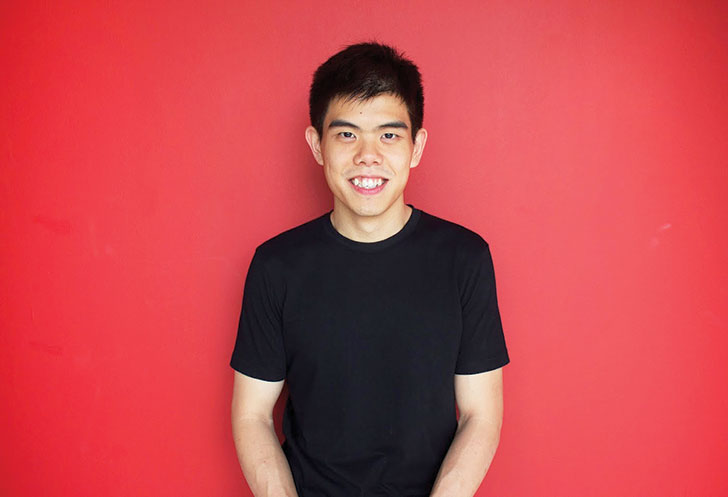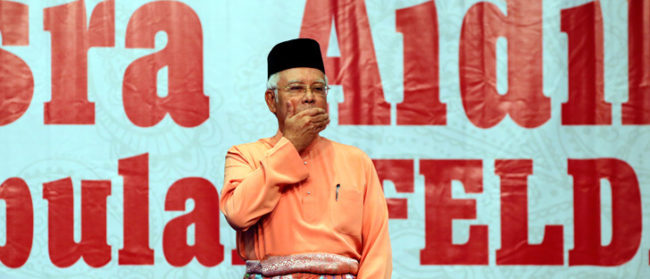What does it mean to you to be an entrepreneur?
Looking at the world we live in, wondering why some things are the way they are, and thinking, “Why does it have to be this way? Why can’t we do this differently?” Then looking at tech to see how we can use it to solve a problem in a way that has meaning to someone’s life. For example, Carousell addresses the frustration you and I have after accumulating so much stuff in our lives. First world problem, maybe, but it is an issue all the same. Overconsumption and societal pressures have influenced our shopping habits, so that we often buy things we don’t need. These things end up collecting dust. We offer people a chance to pass these things on to someone who could need them more, by using a simple, intuitive mobile-first interface to buy and sell using a smartphone. Using features that people are already familiar with, you take a photo, type a description, and post a listing. If you see something you like, just start chatting to a seller to begin the transaction. All it takes is 30 seconds to snap, list, sell.
What makes Southeast Asia a good region to be an entrepreneur?
Carousell is a mobile-first platform, developed for the Snapchat generation. In Southeast Asia, where more people are experiencing the internet for the first time through their smartphones, we have the opportunity to reimagine the way they buy and sell online. There are over 600 million people, but almost 400 million are not connected to the internet yet. That’s a lot of potential.
We’re reaching out to a generation of internet users who leapfrogged the desktop internet, creating an environment where we can take a mobile-first approach to solving unique local problems. The global investors have brought the mindset of the long game here, to support the new wave.
Five years ago, you’d have struggled to be running a pre-revenue startup. No one would give you the runway to build a service, gain network effects and play the long game. We are in a more fortunate era where there is serious venture capital. In the past 12-18 months, a dozen hundred million-dollar venture funds have launched to serve series A & B rounds.
What made you want to be an entrepreneur?
I didn’t start out wanting to be an entrepreneur. For me, it was more about spotting a problem, and feeling that there has to be a better way to do this. If you’ve ever bought or sold something on a forum or classifieds website, you’ll remember how difficult and frustrating it could be to list an item, or find something you wanted on these sites or forums. You often needed a pretty good idea of how they worked, as they could be rather complex and difficult to use.
In March 2012, the three of us participated in Startup Weekend Singapore and built the first Carousell prototype in 54 hours to solve this problem. The basis of the idea was that selling should be as simple as taking a photo, and buying as easy as chatting. We felt that this was important, as we noticed more people like us using the smartphone as their main device to access the internet.
We demoed the prototype, won the competition, but what really made us take the plunge and bring Carousell to life was the hundreds of people who told us they liked the idea through our Facebook, Twitter and our Launchrock landing page. Some even tweeted to ask if they could download the app right away! It was intense and crazy, and we loved it. After spending a year in Silicon Valley as part of the NUS (National University of Singapore) Overseas College Program, we were inspired to use technology to solve meaningful problems at scale. We thought this was a meaningful problem since it resonated with a lot more people than just ourselves. After Startup Weekend, we knew how we wanted to begin. We started working on Carousell full-time in May 2012. The first version was launched in the Singapore iTunes Store in August 2012.
What has been the biggest difficulty?
There was a lot of pressure – from myself, and especially from my family. It was tough to tell them I was dropping out of my honours year to go full-time, without a salary for 18 months. They were speechless and honestly had faces of disappointment. Everyone was like, how will you make money? The large classifieds companies and e-commerce marketplaces will kill you. But we persisted because we clearly no longer used those services ourselves.
The first one and a half years were tough. At one point we had seven new users a day, but then we had 400 active users that we kept in close contact with. We emailed every single person who signed up. We built a relationship from there and discovered that the target audience that resonated most with our product were those between 15-24 years old, with no assumptions of how online marketplaces historically worked. Since then, we’ve continued to do things that don’t scale, because every single interaction with a Carousell user can make a difference to that person. We’re not just building a platform; it’s the community of users that makes it special.
Do you think your country’s government does too much or too little for entrepreneurs, and why?
I think that Singapore has a done a good job in giving startups in Singapore a fighting chance. Schemes and grants like the ACE Startups Fund and the Early Stage Venture Funding Scheme, and even subsidised office space at Blk71 have made it easier for companies like us to get started, and lowered the barriers for VCs to invest in local startups.
While that’s a great starting point, more can be done to nurture a vibrant, organic startup community and enable Singapore startups to compete on a global level. Three areas that could do with more government support are creating an environment that’s more attractive for top engineering and computer science talent, encouraging risk-taking and changing the perception of failure, and more awareness around how fulfilling and meaningful it can be as an entrepreneur. It would also be great to hear more stories about startups in Asia going global
What advice would you give to others who want to be entrepreneurs?
Be absolutely passionate about what you’re doing. There are many challenges that you’ll go through daily in a startup, and the only reason that you’ll keep persevering and pressing on is because you care a lot about what you do.
Lai Chang Wen is the co-founder and CEO of Ninja Van, an e-commerce shipping startup. Previously, he was CEO and founder of online custom apparel retailer, Marcella.
Sze Ming Woo is the founder of Gamurai, a young Singaporean technology development company that works with research institutes, industry partners and governmental bodies.


